| | This section is empty. You can help by adding to it. (July 2010) |
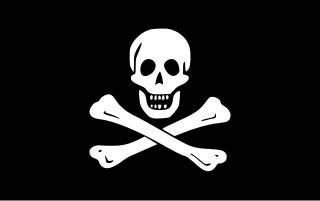
Piracy is an act of robbery or criminal violence by ship or boat-borne attackers upon another ship or a coastal area, typically with the goal of stealing cargo and other valuable goods. Those who conduct acts of piracy are called pirates, and vessels used for piracy are called pirate ships. The earliest documented instances of piracy were in the 14th century BC, when the Sea Peoples, a group of ocean raiders, attacked the ships of the Aegean and Mediterranean civilisations. Narrow channels which funnel shipping into predictable routes have long created opportunities for piracy, as well as for privateering and commerce raiding.
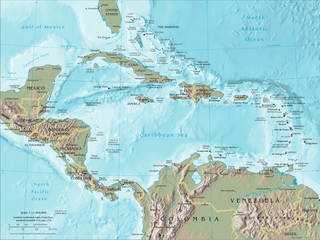
The era of piracy in the Caribbean began in the 1500s and phased out in the 1830s after the navies of the nations of Western Europe and North America with colonies in the Caribbean began hunting and prosecuting pirates. The period during which pirates were most successful was from the 1660s to the 1730s. Piracy flourished in the Caribbean because of the existence of pirate seaports such as Port Royal in Jamaica, Tortuga in Haiti, and Nassau in the Bahamas. Piracy in the Caribbean was part of a larger historical phenomenon of piracy, as it existed close to major trade and exploration routes in almost all the five oceans.
Captain Samuel Bellamy, later known as "Black Sam" Bellamy, was an English sailor turned pirate during the early 18th century. He is best known as the wealthiest pirate in recorded history, and one of the faces of the Golden Age of Piracy. Though his known career as a pirate captain lasted little more than a year, he and his crew captured at least 53 ships.

Whydah Gally was a fully rigged ship that was originally built as a passenger, cargo, and slave ship. On the return leg of her maiden voyage of the triangle trade, Whydah Gally was captured by the pirate Captain Samuel "Black Sam" Bellamy, beginning a new role in the Golden Age of Piracy.

Stede Bonnet was a Barbadian-born pirate and military officer, known as the Gentleman Pirate because he was a moderately wealthy landowner before turning to a life of crime. Bonnet was born into a wealthy English family on the island of Barbados, and inherited the family estate after his father's death in 1694. Despite his lack of sailing experience, Bonnet decided he should turn to piracy in the spring of 1717. He bought a sailing vessel, the Revenge, and travelled with his paid crew along the Eastern Seaboard of what is now the United States, capturing other vessels and burning other Barbadian ships.
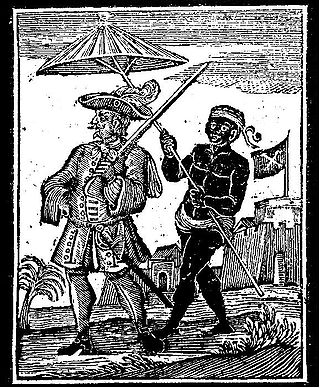
Henry Every, also known as Henry Avery, sometimes erroneously given as Jack Avery or John Avery, was an English pirate who operated in the Atlantic and Indian oceans in the mid-1690s. He probably used several aliases throughout his career, including Benjamin Bridgeman, and was known as Long Ben to his crewmen and associates.

The Golden Age of Piracy is a common designation for the period between the 1650s and the 1730s, when maritime piracy was a significant factor in the histories of the North Atlantic and Indian Oceans.
Jeremiah Cocklyn, better known by the name Thomas Cocklyn, was an English pirate known primarily for his association with Howell Davis, Olivier Levasseur, Richard Taylor, and William Moody.

Emanuel Wynn was a French pirate of the 17th century who is often considered the first pirate to fly the Jolly Roger.
The Pirate Round was a sailing route followed by certain, mainly English, pirates, during the late 17th century and early 18th century. The course led from the western Atlantic, parallel to the Cape Route around the southern tip of Africa, stopping at Madagascar, then on to targets such as the coast of Yemen and India. The Pirate Round was briefly used again during the early 1720s. Pirates who followed the route are sometimes referred to as Roundsmen. The Pirate Round was largely co-extensive with the routes of the East India Company ships, of Britain and other nations.

Charles Gibbs was the pseudonym of an American pirate, born James D. Jeffers. Jeffers was one of the last active pirates in the Caribbean during the early 19th century, and was among the last persons to be executed for piracy by the United States.
Piracy off the coast of Somalia occurs in the Gulf of Aden, Guardafui Channel, and Somali Sea, in Somali territorial waters and other surrounding places and has a long troubled history with different perspectives from different communities. It was initially a threat to international fishing vessels during the early 2000s, only to rapidly escalate and expand to international shipping during the War in Somalia (2006–2009).

The Battle of Cape Fear River, also known as the Battle of the Sandbars, was fought in September 1718 between two sloops from the Province of South Carolina led by William Rhett and a group of pirate ships under the command of Stede Bonnet. Rhett's sloops defeated the pirates in the Cape Fear River estuary which led to Bonnet's eventual execution by hanging in Charleston, South Carolina.

The Battle of Cape Lopez was fought in early 1722 during the Golden Age of Piracy. A Royal Navy ship of the line under the command of Captain Chaloner Ogle defeated the pirate ship of Bartholomew Roberts off the coast of Gabon, West Africa.
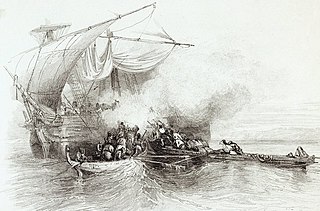
Aegean Sea anti-piracy operations began in 1825 when the United States government dispatched a squadron of ships to suppress Greek piracy in the Aegean Sea. The Greek civil wars of 1824–1825 and the decline of the Hellenic Navy made the Aegean quickly become a haven for pirates who sometimes doubled as privateers.
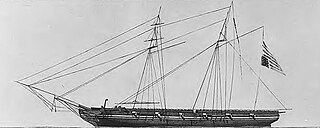
The West Indies Anti-Piracy Operations were a series of military operations and engagements undertaken by the United States Navy against pirates in and around the Antilles. Between 1814 and 1825, the American West Indies Squadron hunted pirates on both sea and land, primarily around Cuba and Puerto Rico. After the capture of Roberto Cofresi in 1825, acts of piracy became rare, and the operation was considered a success, although limited occurrences went on until slightly after the start of the 20th century.

Bartolomeu Português (1623–1670) was a Portuguese buccaneer who attacked Spanish shipping in the late 1660s. Português was responsible for the creation of the first "Pirate's Code".

The Atlantic World refers to the period between European colonisation of the Americas (1492-) and the early nineteenth century. Piracy became prevalent in this era because of the difficulty of policing this vast area, the limited state control over many parts of the coast and the competition between different European powers. The best known pirates of this era are the Golden Age pirates (c.1650-1730) who roamed the seas off the coast of North America, Africa and the Caribbean.
Richard Glover was a pirate and slave-trader active in the Caribbean and the Red Sea in the late 1690s.

Acts of grace, in the context of piracy, were state proclamations offering pardons for acts of piracy. General pardons for piracy were offered on numerous occasions and by multiple states, for instance by the Kingdom of England and its successor, the Kingdom of Great Britain, in the 17th and 18th centuries.